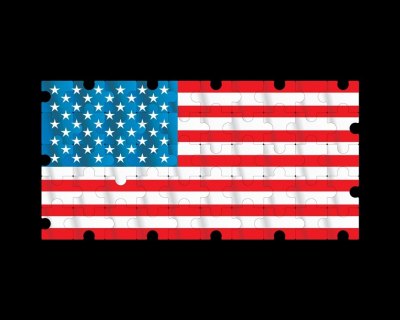
Dan Fisher, a Republican, had taken issue with the course, which he said emphasized negative aspects of American history. But educators point out that the goal of an advanced placement course is to promote critical thinking.
As opposed to elementary-school classes in which students memorize dates, write essays about the 13 Colonies and give presentations on the Founding Fathers,students are asked to analyze. The idea is to “apprentice students to the practice of history by explicitly stressing the development of historical thinking skills while learning about the past,” the course outline explains.
The background: Fisher had proposed a bill to cut funding for the College Board's AP U.S. History course. The course has a newly revised curriculum which went into effect in the fall of 2014. He has since backed away from that proposal, the Tulsa World reports, saying he wishes to clear up the bill’s wording.
In a discussion made available online by the Tulsa newspaper, Fisher told other Oklahoma lawmakers that the curriculum, "trades an emphasis on America's founding principles of constitutional government in favor of robust analysis of gender, racial oppression, class, ethnicity and the lives of marginalized people. Under the new framework, the emphasis of instruction is on America as a nation of oppressors and exploiters."
Fisher added that he didn't want to hide the nation's "blemishes," but wanted a more balanced approach.
Another complaint: Fisher wasn't the first to gripe. Last year, the Republican National Committee charged that the curriculum presents "a biased and inaccurate view of many important events in American history, including the motivations and actions of 17th-19th century settlers, American involvement in World War II, and the development of and victory in the Cold War."
The committee requested that Congress "withhold any federal funding to the College Board" until the course and examination have been rewritten "in a transparent manner to accurately reflect U. S. history without a political bias and to respect the sovereignty of state standards...."
Impact: Developed by the College Board, a not-for-profit, AP courses are considered both rigorous and prestigious -- billed as a way to signal colleges that a student is serious about education. On its website, the organization says that 2,600 colleges worldwide grant credit for AP scores. To be sure, a number of colleges refuse to give credit for AP scores. There are also competing programs, such as the International Baccalaureate curriculum.
The course: A complete description of the course is available on the College Board website. Here are some of the concepts:
- Social change: “The arrival of Europeans in the Western Hemisphere in the 15th and 16th centuries triggered extensive demographic and social changes on both sides of the Atlantic.”
- Early rationale for subjugation: “Contacts among American Indians, Africans, and Europeans challenged the worldviews of each group.” Many Europeans, the outline explains, “developed a belief in white superiority to justify their subjugation of Africans and American Indians, using several different rationales.”
- The development of the U.S. as a country and the rights of American Indians: The U.S. Constitution failed to spell out “the relationship between American Indian tribes and the national government,” the outline says, and this "led to problems regarding treaties and Indian legal claims relating to the seizure of Indian lands.”
- On attitudes toward slavery: “Many white Americans in the South asserted their regional identity through pride in the institution of slavery, insisting that the federal government should defend that institution.”
- America in the 20th Century: “Global conflicts over resources, territories and ideologies renewed debates over the nation’s values and its role in the world while simultaneously propelling the United States into a dominant international military, political, cultural and economic position.”
Related:
Quick Study: Who are the founding fathers?
Quick Study: England's manpower advantage